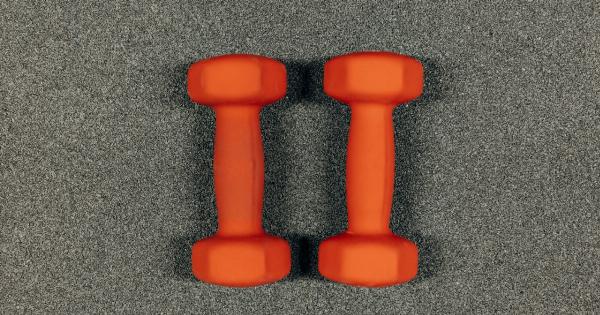The postpartum period is a crucial time for new moms to focus on their health and well-being. One aspect that often takes priority is weight loss.
While it’s important to approach weight loss with patience and a long-term perspective, incorporating healthy eating habits can help kickstart the process. Here are some tips to support postpartum weight loss through healthy eating:.
1. Eat Nutrient-Dense Foods
Instead of focusing solely on quantity, prioritize the quality of the foods you eat. Opt for nutrient-dense options that provide essential vitamins, minerals, and antioxidants.
Incorporate plenty of leafy greens, fruits, lean proteins, whole grains, and dairy or plant-based alternatives into your meals. These foods not only aid in weight loss but also provide the necessary nutrients for optimal postpartum recovery.
2. Include Healthy Fats
A common misconception is that all fats are harmful to weight loss efforts. On the contrary, healthy fats are essential for proper hormone production and promoting a feeling of fullness.
Include sources of healthy fats such as avocados, nuts and seeds, fatty fish like salmon, olive oil, and coconut oil into your diet.
3. Practice Portion Control
While it might be tempting to go on a strict diet, it’s important to fuel your body adequately during the postpartum period, especially if breastfeeding. Rather than drastically cutting calories, focus on portion control.
Listen to your body’s hunger and fullness cues and aim for balanced meals that provide a range of nutrients. Remember, it’s about nourishing your body, not depriving it.
4. Stay Hydrated
Proper hydration is crucial for overall health and postpartum weight loss. Drinking an adequate amount of water throughout the day can help you feel fuller, support digestion, and boost your metabolism.
Make it a habit to carry a water bottle with you and sip on water regularly.
5. Be Mindful of Snacking
Snacking can either support or sabotage your weight loss goals. Choose nutrient-dense snacks such as fruits, vegetables with hummus, Greek yogurt, or a handful of nuts. Avoid mindless snacking while watching TV or scrolling through your phone.
Instead, be mindful and intentional about your snacks to prevent excessive calorie intake.
6. Meal Prep and Planning
Preparing meals and snacks in advance can help you make healthier choices and avoid reaching for convenience foods. Dedicate some time each week to plan your meals, create a shopping list, and batch cook.
Having nutritious meals readily available will prevent you from resorting to fast food or processed options when hunger strikes.
7. Prioritize Protein
Protein is a key nutrient that promotes satiety, supports muscle recovery, and aids in weight loss. Include lean sources of protein such as chicken breast, turkey, fish, tofu, eggs, or legumes in your meals and snacks.
Protein-rich foods can help curb cravings and keep you feeling satisfied for longer.
8. Limit Added Sugars
Excessive sugar consumption can lead to weight gain and energy crashes. Limit your intake of sugary beverages, candies, baked goods, and processed snacks.
Instead, satisfy your sweet tooth with naturally sweet snacks like fresh fruits or a small serving of dark chocolate.
9. Practice Moderation, Not Deprivation
Avoid adopting an “all or nothing” mindset when it comes to your eating habits. Allow yourself occasional treats or indulgences in moderation.
Completely depriving yourself of your favorite foods may lead to feelings of restriction and cause binge-eating episodes. Enjoy your favorite treats mindfully and without guilt.
10. Seek Professional Guidance
Every individual’s needs and circumstances are unique. If you’re struggling with weight loss or have specific dietary concerns, it’s wise to consult a healthcare professional or a registered dietitian.
They can provide personalized advice and guidance to help you achieve your postpartum weight loss goals in a healthy and sustainable manner.






























